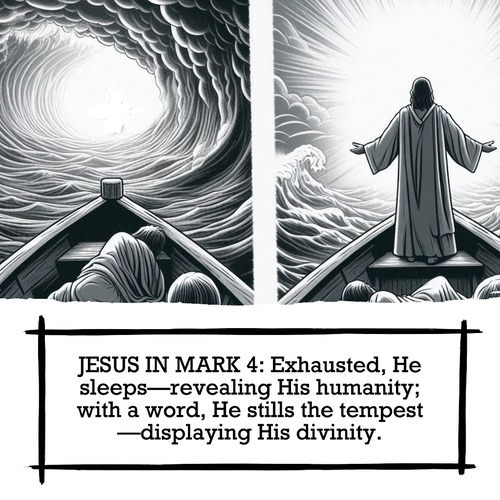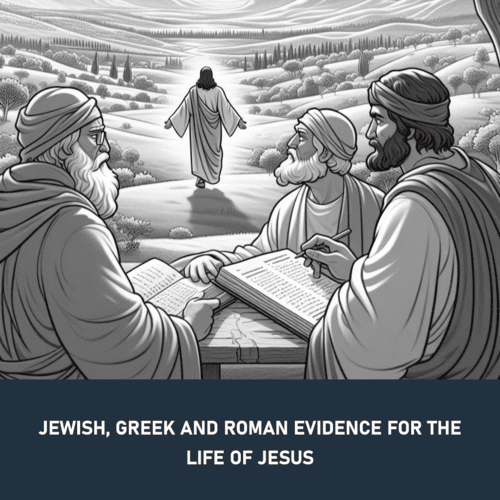A Name No One Else Knows: Revelation 19:12’s Mystery
In Revelation 19, the Apostle John beholds Christ in His triumphant return as the conquering King. Among the striking details of this vision, one particularly mysterious element stands out: “He has a name written on him that no one knows but he himself” (Revelation 19:12). This declaration comes in a chapter replete with names and titles for Christ—the Faithful and True, the Word of God, King of Kings and Lord of Lords—yet amidst these revealed names is one that remains unknown to all creation. The significance of this revelation has captivated theologians throughout church history, leading to rich theological reflection on the nature of Christ, divine incomprehensibility, and the relationship between revelation and mystery in Christian faith.
BIBLICAL FOUNDATION FOR DIVINE NAMES
In Scripture, names carry theological significance, and are far more than mere labels or identifiers. In Hebrew thought, names reveal essential nature and character. Throughout the Old Testament, God progressively reveals His names as part of His self-disclosure to His people: Yahweh, El Shaddai, Adonai, each unveiling aspects of His character and relationships with His covenant people.
This pattern continues in the revelation of Christ, whose names unfold the fullness of His person and work: Immanuel (God with us), Jesus (Yahweh saves), Christ (the Anointed One). Each name builds upon the previous, creating a tapestry of divine self-disclosure. Yet in Revelation 19:12, we encounter a striking paradox—a name that exists but remains unknown.
REFORMED PERSPECTIVES ON WHAT THE UNKNOWN NAME MEANS
- John Calvin, in his commentary on Revelation, connects this unknown name to the doctrine of divine incomprehensibility. He writes, “This indicates the majesty of Christ surpasses all human and angelic understanding.” Calvin sees in this name a reminder that while God has truly revealed Himself in Christ, He has not revealed Himself exhaustively.
- Herman Bavinck: Reformed teachers throughout history have offered helpful insights about this mysterious name of Christ. Bavinck, a respected Dutch Reformed theologian, explains it this way: Just as children can truly know and love their parents while still not understanding everything about them, we can truly know God through Christ while acknowledging there are depths to Him we cannot fully grasp. This matches what we see throughout the Bible—God reveals Himself to us genuinely and personally, yet remains far greater than our minds can fully comprehend.
- Matthew Henry points out the unknown name shows us Jesus knows Himself in a way no one else can, because He is both truly God and truly man. This reminds us of Jesus’ words that “no one knows the Son except the Father” (Matthew 11:27).
- John Owen: The Puritan, Owen expands on this theme in his work The Glory of Christ, arguing the unknown name points to the infinite depth of Christ’s divine nature. Owen writes, “There are in Christ infinite treasures of divine wisdom, knowledge and glory, which no creature can comprehend.”
- GK Beale: Among modern Reformed scholars, Beale emphasises how this unknown name functions within the apocalyptic genre to underscore Christ’s divine transcendence.
The doctrine of God’s transcendence has important implications for contemporary worship and preaching. It calls for a recovery of this doctrine in an age that often emphasises only God’s nearness and immanence, while at the same time not losing the precious truth of Christ’s real accessibility to His people.
A NAME NO ONE ELSE KNOWS: THEOLOGICAL AND PRACTICAL IMPLICATIONS
The mysterious name carries profound implications for Reformed theology.
- It reinforces the doctrine of divine incomprehensibility as articulated in the Westminster Confession of Faith (2.1): “There is but one only living and true God, who is infinite in being and perfection… incomprehensible.” The unknown name reminds us that even in Christ’s full revelation of God, there remain depths of deity that transcend created understanding.
- The name also speaks to Christology, particularly regarding the hypostatic union. As the God-man, Christ possesses both divine and human natures. This unknown name appears to be connected to His divine nature, pointing to aspects of His deity that exceed human comprehension while not diminishing the reality of His true human nature.
- It fosters proper humility in theological reflection. While we can truly know God through His revelation in Christ, we must resist the temptation to think we can fully comprehend Him.
- The unknown name also enriches Christian worship. It reminds us our worship should combine reverent awe at divine transcendence with grateful joy in divine condescension. The balance of the known and unknown names of Christ in Revelation 19 models this dual aspect of Christian devotion.
CONCLUSION: A NAME NO ONE ELSE KNOWS
The unknown name of Christ in Revelation 19:12 is a powerful reminder that while God has truly revealed Himself in Christ, He remains the infinite, transcendent God whose being exceeds created comprehension. The truth should lead us to:
- Intellectual humility in theological reflection
- Wonder and awe in worship
- Confident trust in Christ’s all-sufficient person and work
- Eager anticipation of fuller knowledge in glory
As Richard Sibbes beautifully expressed, “There are heights and depths and lengths and breadths in Christ that pass knowledge, yet it is our happiness to be led more and more into them.”
A NAME NO ONE ELSE KNOWS: RELATED FAQs
In Revelation 2:17, believers are promised a new name known only to themselves. How does this connect to Christ’s unknown name? The promise that each believer will receive “a new name that no one knows except the one who receives it” suggests just as Christ has unique self-knowledge as the divine Son, believers will receive a special identity in their glorified state that reflects their unique relationship with God. This personal name represents the believer’s perfected identity in Christ, known fully only to themselves and God.
How does Judges 13:18 (where the Angel of the LORD says His name is “beyond understanding”) connect to Christ’s unknown name? The Angel of the LORD’s statement that His name is “beyond understanding” is widely understood by Reformed interpreters as a pre-incarnate appearance of Christ. Both passages emphasise that aspects of Christ’s divine nature transcend human comprehension. This parallel helps us understand that Christ’s unknown name in Revelation 19:12 points to His eternal divine nature rather than His human nature.
What’s the connection between Isaiah 9:6’s “Wonderful” (or “Secret”) name and Christ’s unknown name? In Isaiah 9:6, the word translated as “Wonderful” (pele) can also mean “Secret” or “Mysterious,” and appears in contexts dealing with divine transcendence. This name in Isaiah anticipates the fuller revelation in Revelation 19:12 that Christ possesses depths of deity that exceed human understanding. Both passages work together to show that even as Christ is truly revealed to us, He remains the infinite God whose being cannot be fully comprehended by finite creatures.
Will we ever know Christ’s unknown name? While in glory we will know Christ more fully than we do now (“then I shall know fully, even as I am fully known”—1 Corinthians 13:12), the unknown name likely points to aspects of Christ’s divine nature that will always transcend created comprehension. Even in our glorified state, we will remain finite creatures before an infinite God, though we will know Him far more deeply than we do now.
How should this unknown name affect our daily Christian life? The mystery of Christ’s unknown name should deepen both our humility and our worship, reminding us that while we can truly know God through Christ, we must never think we can fully comprehend Him. This truth should make us more diligent in studying what God has revealed while maintaining a sense of awe and wonder at the infinite depths of Christ’s person. Practically, it means approaching Christ with both the confidence that comes from His revealed names and the reverence that comes from recognizing His transcendent mystery.
Editor's Pick

Did Jesus Cleanse the Temple Twice?
OR DID JOHN DISAGREE WITH THE SYNOPTICS ON TIMING? One of sceptics’ favourite "gotcha" questions targets what they see as [...]

Self-Authentication: Why Scripture Doesn’t Need External Validation
"How can the Bible prove itself? Isn't that circular reasoning?" This objection echoes through university classrooms, coffee shop discussions, and [...]

Do Christians Need Holy Shrines? Why the Reformed Answer Is No
Walk into a medieval cathedral and you'll encounter ornate shrines, gilded reliquaries, and designated "holy places" where pilgrims gather to [...]

I Want To Believe, But Can’t: What Do I Do?
"I want to believe in God. I really do. But I just can't seem to make it happen. I've tried [...]

BC 1446 or 1250: When Did the Exodus Really Happen?
WHY REFORMED SCHOLARS SUPPORT THE EARLY DATE Many a critic makes the claim: “Archaeology has disproven the biblical account [...]

Does God Know the Future? All of It, Perfectly?
Think about this: our prayers tell on us. Every time we ask God for something, we’re confessing—often without realising it—what [...]

Can Christian Couples Choose Permanent Birth Control?
Consider Sarah, whose fourth pregnancy nearly killed her due to severe pre-eclampsia, leaving her hospitalised for months. Or David and [...]

Bone of My Bones: Why Eve Was Created From Adam’s Body
"This at last is bone of my bones and flesh of my flesh!" Adam's joyful exclamation upon first seeing Eve [...]

Is Calvinism Fatalism in Christian Disguise? Think Again
We hear the taunt every now and then: "Calvinism is just fatalism dressed up in Christian jargon." Critics argue Reformed [...]

Can Churches Conduct Same-Sex Weddings?
In an era of rapid cultural change, churches across America face mounting pressure to redefine their understanding of marriage. As [...]
SUPPORT US:
Feel the Holy Spirit's gentle nudge to partner with us?
Donate Online:
Account Name: TRUTHS TO DIE FOR FOUNDATION
Account Number: 10243565459
Bank IFSC: IDFB0043391
Bank Name: IDFC FIRST BANK






